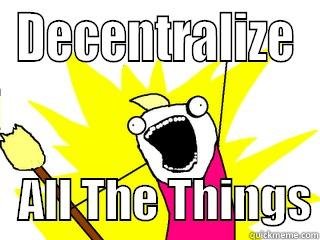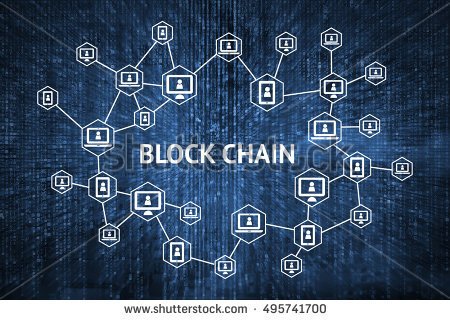Blockchain Applications/Usecases Beyond Finances.
It is believed that ~15% of banks around the world are already using blockchain technolongy for their financial services. There is no doubt that the Blockchain Technology is a revolutionary tech,here are some applications/usecases of how Blockchain Technology can be used other than for financial purposes.

User identification, authentication and security.
The need for maintaining robust digital security standards is not limited to transactions in the financial sector alone. The open-source distributed ledger technology is expected to make the task of identifying and authenticating users a lot more efficient. All that individual users have to do is create unique identities on the blockchain network, to manage/control the nature and accessibility of their personal data. The technology will assign a ‘digital ID’ to each user – which would help in tracking all transactions of asset(s) in future. Credit report malpractices, cases of online identity thefts and cyber frauds will all go down with the progressive implementation of the blockchain technology. User-identification with the help of biometry tools (like fingerprint identification) is also being facilitated by underlying blockchains. A case in point for this is UniquID.
Establishment of decentralized social networks.
Case on point: SteemIt (Yes! This awesome website!). This is one of the newest domains in which blockchain technology has started to make its presence felt. Unlike Facebook or Twitter or any other currently popular social media sites, a decentralized social network (DSN) would not involve any centralized, controlling company/entity – and user privacy will be much higher. The same software can be used for connecting multiple servers in a DSN. SteemIt,Synereo, DATT and Diaspora are some examples of the decentralized social networks that are coming up. Many experts feel that social networking will become more and more decentralized over the next decade or so – and if that is indeed the case, the role of blockchains over here will become increasingly prominent. There are a lot more projects following SteemIt's lead. Decentralize everything!
Data handling.
The volume of data that is regularly collected (and has to be correctly scanned) by us is expanding rapidly. A blockchain-based ledger setup can ease the overall process of data management by both companies as well as governmental bodies – by recording details of different entries, making the data handling tasks simpler and more transparent, and ensuring uniformly high levels of data security. Since the data records in the blockchain are typically time-stamped, the total cost of data management can be cut down upon (and chances of errors become minimal). The analytics information required for different types of applications can also be supported on a blockchain. The technology helps in compliance-related issues as well.

Logistics management and supply chain auditing.
Blockchains can play a very important role in enhancing the security and efficiency of the storage/transfer of products (perishable goods, in particular). Right from packing and storage, to quality testing and distribution – every activity can be recorded on the distributed ledger, and all concerned parties on the network will be notified about the same. The data that has to be entered by users will vary across the different stages of the supply chain. With blockchains, auditing and establishing the authenticity of each step in the logistics system becomes easier and way smarter than ever before.
Online voting.
In early-2016, it was announced that a decentralized distributed ledger system would be used in the official e-Residency platform (for companies listed on Tallinn Stock Exchange) in Estonia (the announcement was made by the republic and Nasdaq). Blockchains have the potential to play a key role in auditing the ballot boxes in e-voting, thereby recovering much of the credibility of voting systems. A single coin, representing ‘one vote’, will be assigned to each end-user (who would also have his/her credentials in a ‘wallet’). The coin can be ‘spent’ (i.e., the vote can be cast) only once. Apart from keeping fraudulent practices in check, a blockchain-supported voting infrastructure would also be less exposed to online security threats.
Managing intellectual property rights.
A recent report revealed that, illegal downloads bring down the total proceeds from online music sales by ~85%. Other forms of digital art also face similar risks. To protect the intellectual property rights (IRP) and ensure that optimal returns are obtained from the art collections, the blockchains might well be the best tools. On the network, owners of music and other artworks can upload their stuff, provide a watermark for establishing ownership, and manage/track the transfer of these digital art items. In essence, the availability of a virtual decentralized ledger allows artists to control how, where and when their creations are being used/transferred/deployed at all times. The movement of digital art in a Blockchain framework is similar to bitcoin transactions, and there are no chances of IRP violations.
These are just a few examples of how Blockchain Technology can be applied to almost everything. There's literally unlimited number of things we can take advantage of this awesome technology. Dentralize all the things!
All images used are from might Google.
Congratulations @cocokoala! You received a personal award!
Thank you for taking part in the early access of Drugwars.
You can view your badges on your Steem Board and compare to others on the Steem Ranking
Do not miss the last post from @steemitboard:
Vote for @Steemitboard as a witness to get one more award and increased upvotes!